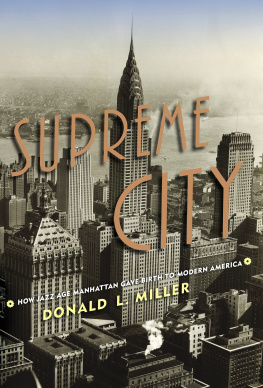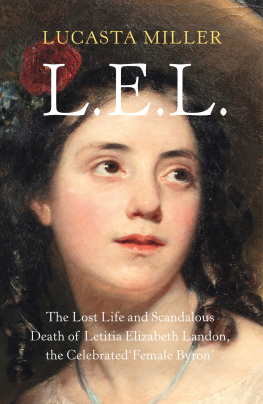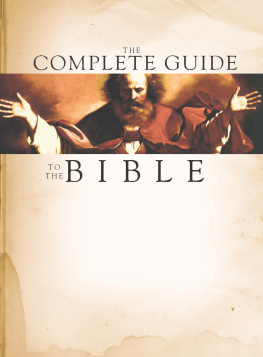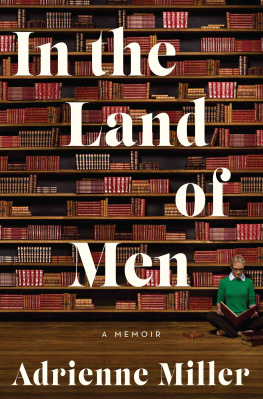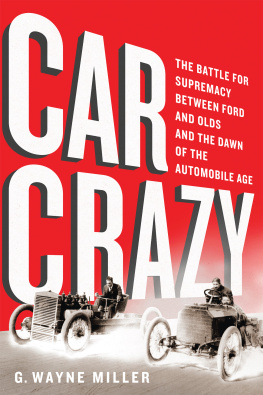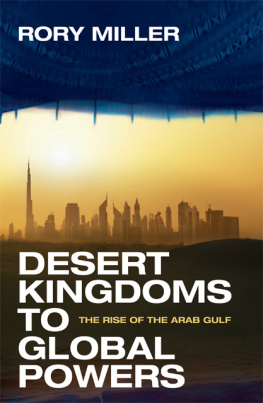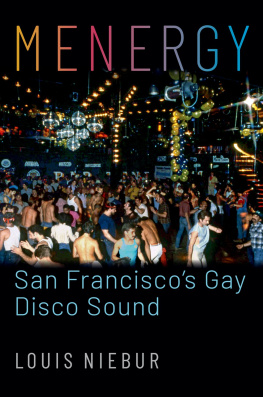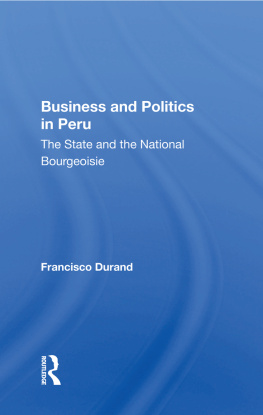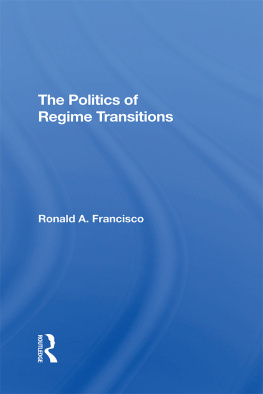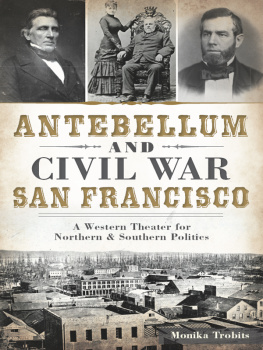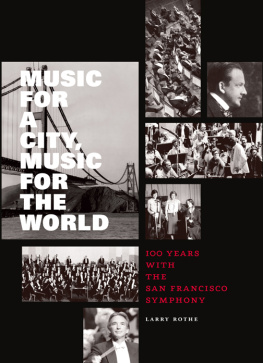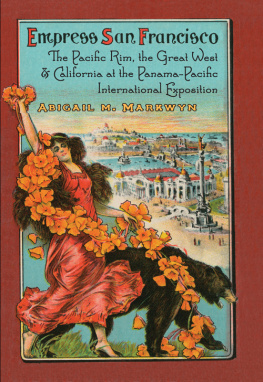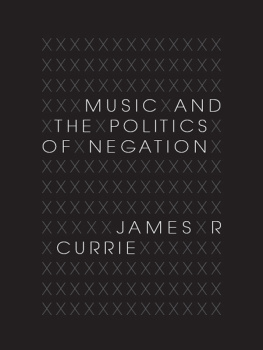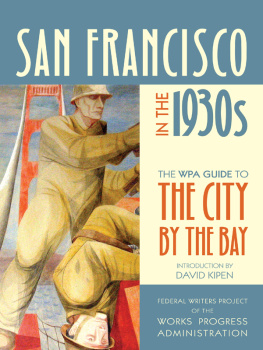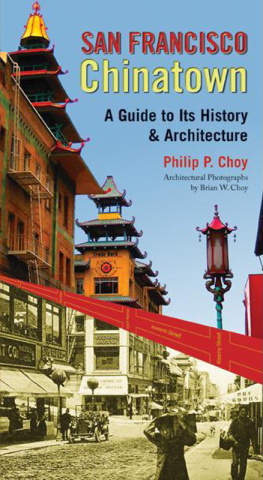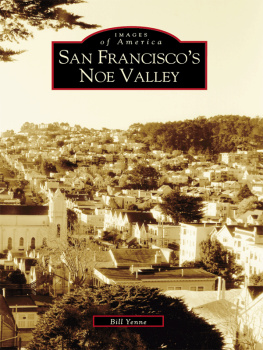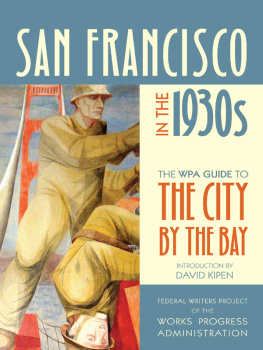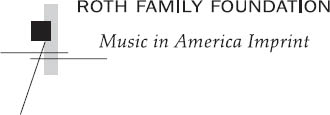
Michael P. Roth
and Sukey Garcetti
have endowed this
imprint to honor the
memory of their parents,
Julia and Harry Roth,
whose deep love of music
they wish to share
with others.
The publisher gratefully acknowledges the generous
support of the Music in America Endowment Fund
of the University of California Press Foundation, which was
established by a major gift from Sukey and Gil Garcetti,
Michael P. Roth, and the Roth Family Foundation.
The publisher also gratefully acknowledges the generous
contribution to this book provided by the Dragan Plamenac
Endowment of the American Musicological Society.
Music and Politics in San Francisco
CALIFORNIA STUDIES IN 20TH-CENTURY MUSIC
Richard Taruskin, General Editor
1. Revealing Masks: Exotic Influences and Ritualized Performance in Modernist Music Theater, by W. Anthony Sheppard
2. Russian Opera and the Symbolist Movement, by Simon Morrison
3. German Modernism: Music and the Arts, by Walter Frisch
4. New Music, New Allies: American Experimental Music in West Germany from the Zero Hour to Reunification, by Amy Beal
5. Bartk, Hungary, and the Renewal of Tradition: Case Studies in the Intersection of Modernity and Nationality, by David E. Schneider
6. Classic Chic: Music, Fashion, and Modernism, by Mary E. Davis
7. Music Divided: Bartks Legacy in Cold War Culture, by Danielle Fosler-Lussier
8. Jewish Identities: Nationalism, Racism, and Utopianism in Twentieth-Century Art Music, by Klra Mricz
9. Brecht at the Opera, by Joy H. Calico
10. Beautiful Monsters: Imagining the Classic in Musical Media, by Michael Long
11. Experimentalism Otherwise: The New York Avant-Garde and Its Limits, by Benjamin Piekut
12. Music and the Elusive Revolution: Cultural Politics and Political Culture in France, 19681981, by Eric Drott
13. Music and Politics in San Francisco: From the 1906 Quake to the Second World War, by Leta E. Miller
14. Frontier Figures: American Music and the Mythology of the American West, by Beth E. Levy
Music and Politics
in San Francisco
From the 1906 Quake
to the Second World War

Leta E. Miller

University of California Press, one of the most distinguished university presses in the United States, enriches lives around the world by advancing scholarship in the humanities, social sciences, and natural sciences. Its activities are supported by the UC Press Foundation and by philanthropic contributions from individuals and institutions. For more information, visit www.ucpress.edu .
University of California Press
Berkeley and Los Angeles, California
University of California Press,
Ltd. London, England
2012 by The Regents of the University of California
Library of Congress Cataloging-in-Publication Data
Miller, Leta E.
Music and politics in San Francisco : from the 1906 quake to the
Second World War / Leta E. Miller.
p. cm. (California studies in 20th-century music ; 13)
Includes bibliographical references and index.
ISBN 978-0-520-26891-3 (cloth : alk. paper)
1. MusicPolitical aspectsCaliforniaSan Francisco
History20th century. I. Title.
ML3917.U6M55 2012
780.97946109041dc22 2011013960
Manufactured in the United States of America
21 20 19 18 17 16 15 14 13 12
10 9 8 7 6 5 4 3 2 1
This book is printed on Cascades Enviro 100, a 100% post consumer waste, recycled, de-inked fiber. FSC recycled certified and processed chlorine free. It is acid free, Ecologo certified, and manufactured by BioGas energy.
To the memory of my dear friend and colleague
Catherine Parsons Smith
who first encouraged me to focus my research on music in the
United States, and whose book on the musical life of Los Angeles
served as an inspiration for the present volume
CONTENTS
ILLUSTRATIONS
MAPS
FIGURES
TABLES
For additional images related to this book, visit www.ucpress.edu/go/letamiller
ACKNOWLEDGMENTS
This book could not have been written without the invaluable help of friends, colleagues, librarians, and assistants. Jonathan Elkus, David Nicholls, and Wayne Shirley read the entire manuscript. Bell Yung and Nancy Rao read the chapter on Chinese music. Paul Machlin and David Brackett commented on portions of dealing with jazz. Larry Rothe read material on the San Francisco Symphony. John Koegel sent extensive comments on the original proposal. The observations of all of these generous colleagues were very much welcome and have found their way into the final version of the text.
Yen-ling Liu provided a wonderful service by searching through Chinese-language newspapers and translating relevant articles. Daniel Brown and Danny Driver worked with me on the transcription of the Keeton choir recordings. The examples presented in Interlude 2 reflect this joint work. Other colleagues, too, lent their ears to evaluating these recordings: Anatole Leikin, Patrice Maginnis, and Brian Staufenbiel.
I am fortunate to have had the opportunity to interview several people who could shed light on topics of interest by relating their personal experiences. I particularly thank in this regard Jonathan Elkus, who has been an inspiration and a continuous source of new observations for the past three years. Earl Watkins (who died in 2007) provided fascinating observations on the musical labor unions, and Carmen Fraetis and Caesar Caiati kindly provided information relating to the early years of the San Francisco Opera. Lou Harrison was the inspiration that launched this project in the first place, and my numerous interviews and conversations with him continue to inspire my work.
Among the many librarians and archivists who have helped with this project, and arranged for my use of selections from the librarys rich collection of visual images. Joseph Evans, archivist with the San Francisco Symphony, graciously provided me with information and images, as did the staff at the California Historical Society. Shannon McQueen at the African American Museum and Library in Oakland, and Janet Olson at Northwestern University, helped me track down background information about Elmer Keeton, and Charlotte Brown at the University of California, Los Angeles, helped locate information on Harl Jervis. The staff at the Stanford Archive of Recorded Sound, and members of the San Francisco Traditional Jazz Foundation (particularly Bill Carter and Leon Oakley), kindly provided me with access to the interview tapes and photos featuring pianist Sid LeProtti. Manuel Erviti, Matthew Weber, and John Shepard at the University of California, Berkeley, and Kevin McLaughlin at the San Francisco Conservatory welcomed me and aided with my research on Hertz, Bloch, and Perlet. Kate Rivers and other staff members at the Library of Congress were extremely gracious and efficient. And the constantly friendly service and encouragement of the library staff at the University of California, Santa Cruz, made this project possible.
Officials of the San Francisco Musicians Union Local No. 6 were very supportive of my work. I would particularly like to acknowledge Gretchen Elliott, Alex Walsh, and Melinda Wagner. Thanks are due as well to Charles Hanson, executor of the Harrison estate, and to Ellen Bacon, widow of Ernst Bacon, both of whom made photographs, documents, and permissions readily available. Richard Teitelbaum kindly provided permission for me to use Cowell materials. Peter-Gabriel de Loriol was an invaluable source of information on his godmother, Harl Jervis. Rabbis Paula Marcus and Yitzhak Miller provided valuable advice relating to Ernest Blochs
Next page

